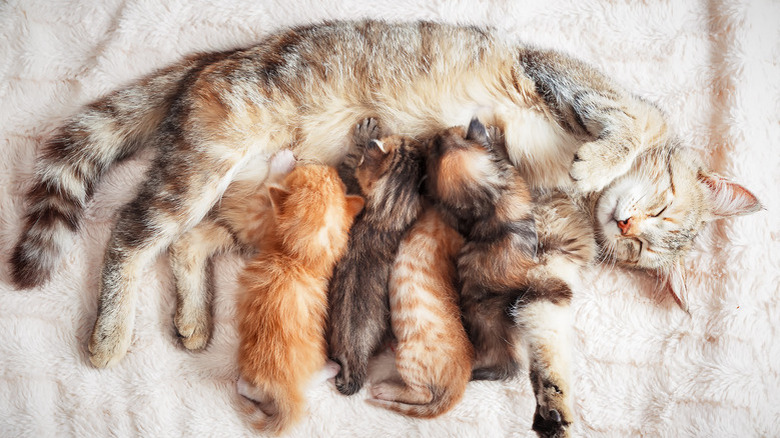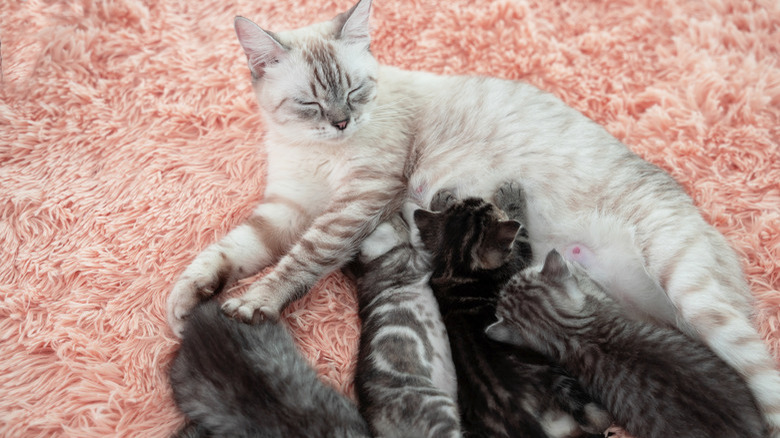What Are The Treatments For A Nursing Cat's Sore Nipples?
The sight of a mother cat nursing her kittens may be endearing to you, but to her, it may be a painful ordeal. There are a variety of ailments a lactating cat can experience, ranging from reduced milk flow to cuts and scratches on her nipples. Kittens tend to nurse from a specific teat, so it's important to keep the mother cat's nursing equipment in good condition. For a nursing cat, swollen nipples are likely, so watch for cat nipple infection or bleeding, and contact your veterinarian if you have concerns.
Mastitis in cats
Like all nursing mothers, a cat is prone to the painful condition known as mastitis, the retention of free-flowing milk in the breast, turning it into a cottage cheese-like substance. Mastitis is caused if the cat's producing more milk than her kittens drink or when a deformity in her teat doesn't allow the milk to flow, enabling bacteria to enter the mammary gland.
Signs of mastitis include red, swollen teats that appear bruised and teats that are overly hot to the touch. A trained hand can manually manipulate the infection out of the nipple, however, this procedure should be performed by someone experienced, such as your vet.
Hot compresses on the affected area offer relief and antibiotics are usually necessary to clear the infection. Mastitis is a medical emergency, so an infected feline with this cat nipple infection needs to be seen by a veterinarian.
Abrasions to a cat's nipples
Cats are known for their rough, sandpaper-like tongues, and kittens are no exception. A mother cat's nipples can get dry and chapped from nursing, as they use their rough tongues to lick and eat.
Your vet can recommend a safe, soothing ointment to help the mother cat without discouraging her brood from nursing.
Mother cat's diet while nursing
It's important to care for mother cat postpartum. Instinctually, she should know to feed her kittens, and you should let her take the lead in doing that. But keep watching for any birth complications and increase nutrition to help her recover and boost her milk supply.
Nursing cats need more calories. Offer her a larger serving of wet and dry food, in kitten formula to give her needed nutrients for her kittens. Canned food is the best option due to its larger protein content. Having extra water around is also a good idea. Keeping your nursing cat healthy will help her make milk, and also keep her in good shape to fight off a cat nipple infection if one were to occur.

